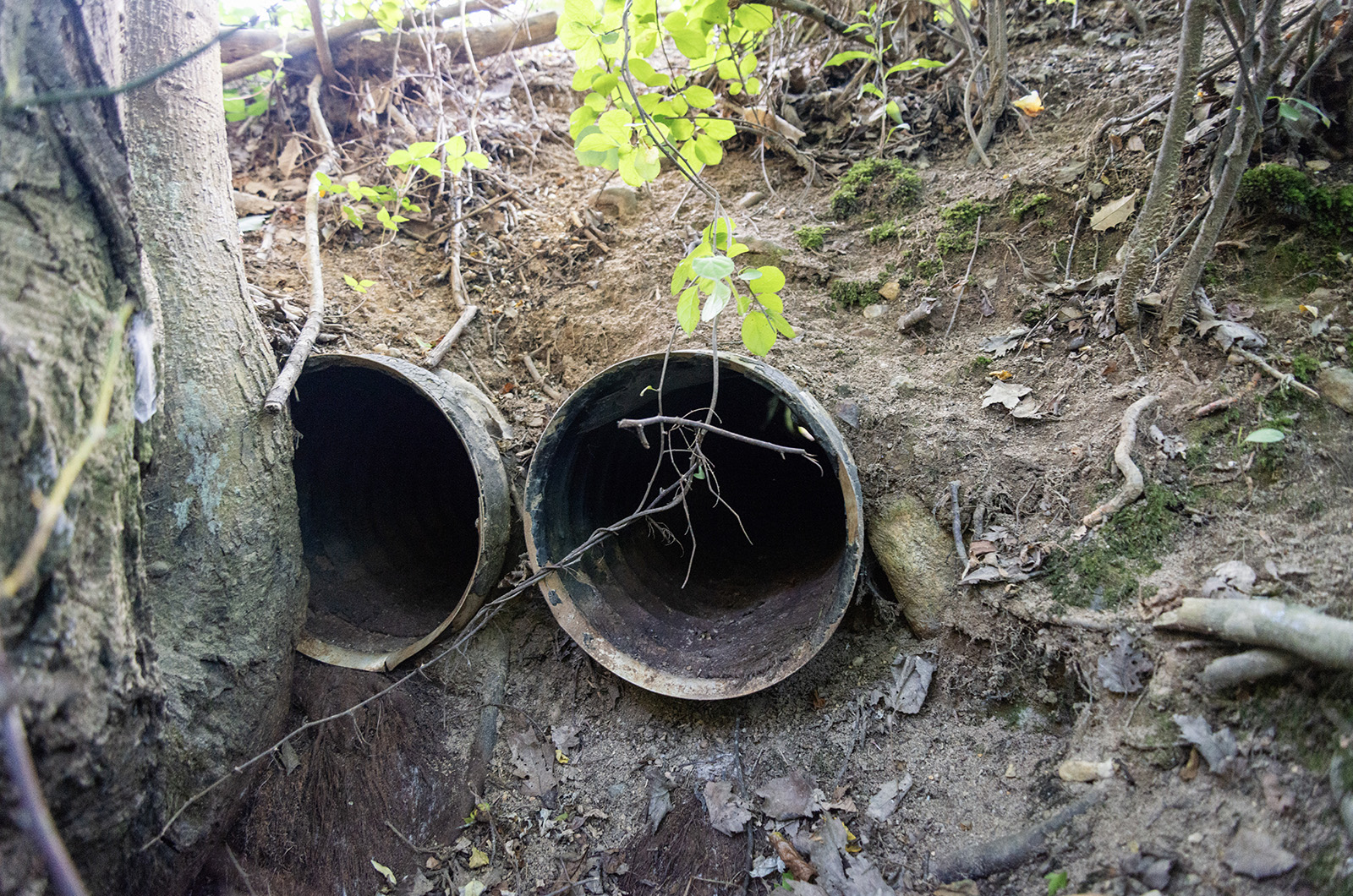Nearly a decade after it was first proposed, a project meant to improve the water quality and ecosystem at the Sheriff’s Meadow Roth Woodlands has yet to get underway.
In 2015, the land conservation nonprofit received a grant from the Massachusetts Environmental Trust to replace two culverts, the tunneled water passages commonly found under roadways, to ease the Mill Brook water flow under Old Farm Road in Chilmark. In 2021, the town approved Sheriff’s Meadow’s plan to install a larger concrete culvert to encourage fish passage through brook, but a legal challenge from neighbors stalled the project.
After triumphing in court earlier this year, Sheriff’s Meadow is now in talks with the neighbors in the hopes of proceeding without further controversy.
“We had a very productive meeting in the spring, and we are working with [a well drilling company] to address concerns,” wrote Sheriff’s Meadow executive director Adam Moore in a statement to the Gazette. “Everything is on hold while we do this fieldwork. I am optimistic about this.”
The project has been controversial with neighbors for years, and in July 2021 several landowners who own land near the Chilmark property appealed a conservation commission decision to approve the project. The suit in Dukes County Superior Court was decided in favor of the commission this February, conditionally upholding the project’s approval.
The decision was appealed by the nonprofit Island Grown Initiative, which owns a life estate on land previously held by Frank, Heidi and Peter Dunkl abutting the Roth Woodlands. Robert, Cynthia, Mollie and Erin Doyle, who own property nearby on North Road, were also plaintiffs in the case.
The group contended that the project would adversely affect wells on both properties, arguing that the conservation commission should not have approved the Sheriff’s Meadow project in face of evidence presented about potential impacts.
In his February 15 decision, judge Mark Gildea upheld the commission’s approval of the project. Mr. Gildea also required the commission to reinstate a provision requiring Sheriff's Meadow to consult with the state Department of Environmental Protection about IGI’s well, which is a state registered public water supply.
Since then, Sheriff’s Meadow has engaged in talks with the abutters on a resolution.
“We don’t want to just keep appealing each other,” said Mr. Moore. “We had a good meeting in the spring.”
According to Mr. Moore, the existing culverts have been causing ecological problems.
Water exits the culvert a few feet above ground level, a height difference which prevents fish from swimming up through the culvert. The installation also caused a pond to form upstream which heats up during the summer, creating adverse conditions for freshwater wildlife.
“They were put in without a lot of thought,” Mr. Moore said.
The neighbors worried that the new culvert would drain the pond and the water table, potentially inundating the IGI well during flooding while drying up the well on the Doyle property.
“[The Dunkls] feel an obligation to protect that water source,” said IGI executive director Rebecca Haag.
IGI acquired the Dunkls’ abutting life estate in 2013, allowing the family to continue to reside on the property for the rest of their lives. An anonymous donor purchased the 23.4-acre property for IGI for $1.4 million.
Though the Dunkls continue to reside on the property, Ms. Haag said it may be used as a “food forest” in the future, providing an opportunity for wild-foraged foods like blueberries, mushrooms and wild herbs. It also has the potential to be used for staff housing, she said.
Mr. Moore said that Sheriff’s Meadow recently engaged the services of Island Water Source, a well drilling company, to ameliorate potential problems. They are now surveying locations to drill a new well, and to provide inundation protection for the well on the IGI property.
Mr. Moore said they plan to get to work on the culvert after the well work is done, and after grant funding has been acquired by Sheriff's Meadow.
“My hope, if everything goes well, is that we’ll do it by winter 2025,” he said.








Comments (5)
Comments
Comment policy »